#Economic health
Text
Thatcher's Legacy and '80s
Just had a spin on Heart 80s.Hear those wolves howling? They’re just trying to find their pack.The ’80s, a time when it felt like the rich were always getting the upper hand, thanks to the government.First past the post, it’s been that way since the King stirred up trouble with Parliament and came up short.Will the rich take on the government? Will the government cozy up to the wealthy?The rich…
View On WordPress
#&039;80s#addiction#addiction to money#balance#Boris Johnson#bribes#british politics#capitalism#changeYourThoughts#conservatism#deepThoughts#democracy#economic health#economics#environmental impact#ethics#first-past-the-post#folk#folkCreative#folklore#government#government policies#Heart 80s#history#inequality#johnson#land degradation#lateNightThoughts#lifeThoughts#littleStoriesOfMyLife
2 notes
·
View notes
Text
Signs of Recession
In the complex world of economics, recessions are inevitable yet challenging events that can have far-reaching consequences on individuals, businesses, and entire nations.
Recognizing the signs of an impending recession is crucial for making informed decisions and mitigating potential risks.
In this blog post, we will delve into the key indicators and signals that economists and policymakers…

View On WordPress
#Business investment#Consumer debt#Consumer spending#Economic cycle#Economic downturn#Economic health#Economic Indicators#Financial Markets#GDP growth#Housing market#Investor sentiment#Mitigating risks#Proactive measures#Recession#Recovery#Resilient future#Stock market performance#Unemployment rates#Yield curve#Yield curve inversion
0 notes
Text
Things I've learned from getting covid for the first time in 2023
I wear an N95 in public spaces and I've managed to dodge it for a long time, but I finally got covid for the first time (to my knowledge) in mid-late November 2023. It was a weird experience especially because I feel like it used to be something everyone was talking about and sharing info on, so getting it for the first time now (when people generally seem averse to talking about covid) I found I needed to seek out a lot of info because I wasn't sure what to do. I put so much effort into prevention, I knew less about what to do when you have it. I'm experiencing a rebound right now so I'm currently isolating.
So, I'm making a post in the hopes that if you get covid (it's pretty goddamn hard to avoid right now) this info will be helpful for you. It's a couple things I already knew and several things I learned. One part of it is based on my experience in Minnesota but some other states may have similar programs.
--------
The World Health Organization states you should isolate for 10 days from first having symptoms plus 3 days after the end of symptoms.
--------
At the time of my writing this post, in Minnesota, we have a test to treat program where you can call, report the result of your rapid test (no photo necessary) and be prescribed paxlovid over the phone to pick up from your pharmacy or have delivered to you. It is free and you do not need to have insurance. I found it by googling "Minnesota Test to Treat Covid"
--------
Paxlovid decreases the risk of hospitalization and death, but it's also been shown to decrease the risk of Long Covid. Long Covid can occur even from mild or asymptomatic infections.
--------
Covid rebound commonly occurs 2-8 days after apparent recovery. While many people associate Paxlovid with covid rebound, researchers say there is no strong evidence that Paxlovid causes covid rebound, and rebounds occur in infections that were not treated with Paxlovid as well. I knew rebounds could happen but did not know it could take 8 days. I had mine on day 7 and was completely surprised by it.
--------
If you start experiencing new symptoms or test positive again, the CDC states that you should start your isolation period again at day zero. Covid rebound is still contagious. Personally I'd suggest wearing a high quality respirator around folks for an additional 8-9 days after you start to test negative in case of a rebound.
--------
Positive results on a rapid test can be very faint, but even a very faint line is positive result. Make sure to look at your rapid test result under strong lighting. Also, false negatives are not uncommon. If you have symptoms but test negative taking multiple tests and trying different brands if you have them are not bad ideas. My ihealth tests picked up my covid, my binax now tests did not.
--------
EDIT: I'd highly suggest spending time with friends online if you can, I previously had a link to the NAMI warmline directory in this post but I've since been informed that NAMI is very much funded by pharmaceutical companies and lobbies for policies that take autonomy away from disabled folks, so I've taken that off of here! Sorry, I had no idea, the People's CDC listed them as a resource so I just assumed they were legit! Feel free to reply/reblog this with other warmlines/support resources if you know of them! And please reblog this version!
--------
I know that there is so much we can't control as individuals right now, and that's frightening. All we can do is try our best to reduce harm and to care for each other. I hope this info will be able to help folks.
#covid#covid 19#harm reduction#apparently only 16% of Americans even got their booster#it's wild out there#which makes sense because our public health messaging has been super unhelpful and intentionally shifted the burden#of infection control onto individuals to avoid us holding them accountable because it's politically and economically inconvenient to them
9K notes
·
View notes
Text
Homebuyer's Pre-Approval Imperative
The homebuyer’s pre-approval imperative is just as the title suggests. Pre-approval is one of the most important steps in the homebuying process. It is essential that prospective homebuyers understand just how vital pre-approval is. Pre-approval is one of the first steps a prospective homebuyer should be taking in their home seeking pursuits. This is where a chosen lender will assess the…

View On WordPress
#best homes 4 sale#best homes 4 sale in southern california#best homes 4 sale near me#best homes for sale near me#best houses 4 sale near me#besthomes4sale#economic health#homebuyer&039;s pre-approval#homebuyer&039;s pre-approval imperative#homes 4 sale near me#homes for sale#mortgage rates#pre-approval
1 note
·
View note
Text
In an ideal workplace, organizations should strive to protect employees from abusive supervisors, but for employees who experience this type of intense workplace stress, new research from the University at Buffalo School of Management offers insight and coping strategies.
Available online ahead of publication in the Journal of Organizational Behavior, the study examines whether employees can recover from supervisory abuse during leisure time, and if individual personality traits impact the restoration process.
"Abusive supervision is detrimental to employees' well-being.
Victims experience increased emotional exhaustion, job stress, negative emotions, and physical symptoms like pain, weakness, fatigue and shortness of breath," says study co-author Min-Hsuan Tu, Ph.D., assistant professor of organization and human resources in the UB School of Management. "Our study clarifies why and under what conditions abused employees engage in certain activities to recover after work."
Gathering data from 203 full-time employees in Taiwan, the researchers analyzed more than 1,500 daily responses over 10 consecutive working days to measure employee perception of nonphysical aggression from a boss or manager, such as humiliating or threatening subordinates or taking credit for their work.
Continue Reading.
404 notes
·
View notes
Photo

1K notes
·
View notes
Text
Should DCRs be legalised in Scotland?
Hi everyone, I am currently completing my master's in Public Policy and was hoping to ask anyone who is Scottish or a resident (lived here for 3+ years) to fill out my 3-question survey on the introduction of Drug Consumption Rooms in Scotland. Currently struggling for numbers so would so appreciate it! No prior knowledge is needed and shouldn't take more than 5 mins. Please feel free to share with friends/family, the more the merrier - Thank you so much!
#scotland#scottish#edinburgh#glasgow#health policy#survey#research#education#lse#london school of economics
479 notes
·
View notes
Photo

956 notes
·
View notes
Text
From Fox News - 'Disease X': World Economic Forum creating contingency plan for infectious virus outbreak
'Disease X': World Economic Forum creating contingency plan for infectious virus outbreak
Coming soon for a summer 2024 release coming to your part of the world!!
But here's what I find most disturbing - this paragraph: "The hypothetical virus, dubbed by the World Health Organization (WHO) as Disease X, HAS NOT YET BEEN FORMED but scientists and attendees at the global confab say they will be chatting about the potential pathogen so that they can prepare properly should it ever strike." Do they have labs preparing this virus right now!!!
Start stocking up on basic essentials, ammo, and guns because it's gonna get bumpy!! Remember that this is the same group that warned about a viral infection and had a TTX about it just MONTHS before COVID hit!!
99 notes
·
View notes
Text

#us politics#republicans#conservatives#donald trump#gop#trump administration#economics#economy#unemployment rate#tax breaks#public debt#health insurance#gun production#culture wars#corporate profits#economic turmoil#2024 elections#memes
34 notes
·
View notes
Text
Gift Economy
Maybe we all feel something so dark and painful deep down, something off and something exhausting about living in this world, which has become so thoroughly pervaded by capitalism and the values of white christian imperialism, because life is a gift meant to be given, and we are not made to exchange one thing for another.
In many indigenous societies, instead of having a transactional economy ("barter" is a myth by the way) there exists what anthropologists call a gift economy, where the main way things get passed around is through gifts and reciprocity.
I think that life itself is a gift we have received, and it's ours to do whatever we want with it, but the best thing to do when you receive a gift is to give again, if you are able. I for one think that the meaning in my life comes from giving; giving myself to my wife, and to my work, giving gifts and sharing love with my friends, giving my heart to music and to the beauty in the world around me. Life is a gift, so I want to give it.
#anthropology#anarchism#robin wall kimmerer#braiding sweetgrass#anti capitalism#gift economy#life#life is a gift#economics#communism#feminism#I got these ideas mainly from Kimmerer's book Braiding Sweetgrass#Also influenced by David Graeber's anarchist anthropology work.#david graeber#capitalist hell#mental health
58 notes
·
View notes
Photo
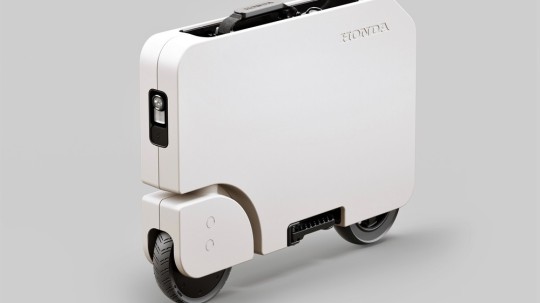
Honda's adorable '80s microscooter is back and electrified for the 21st century
---
74 notes
·
View notes
Text
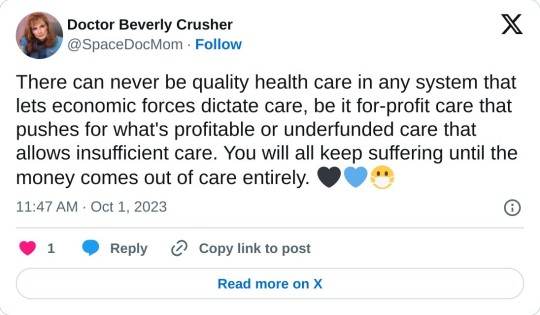
Doctor Beverly Crusher
@SpaceDocMom
There can never be quality health care in any system that lets economic forces dictate care, be it for-profit care that pushes for what's profitable or underfunded care that allows insufficient care. You will all keep suffering until the money comes out of care entirely. emojis: black heart, blue heart, masked
12:47 PM · Oct 1, 2023
#star trek#doctor crusher#star trek the next generation#star trek memes#star trek tng#support#kindness#care#compassion#health care#healthcare#medicine#profit#economics#social justice#activism#social commentary#social issues#capitalism
67 notes
·
View notes
Video
Debt Ceiling
#tiktok#debt ceiling#tax cuts for the rich#economy#economics#Manufacturing Consent#budget cuts#unemployment#health insurance#wealth inequality#wealth gap#hoarding wealth#generational wealth#wealth#income inequality#inequality#recession#economic crisis#us taxes#taxes
83 notes
·
View notes
Text
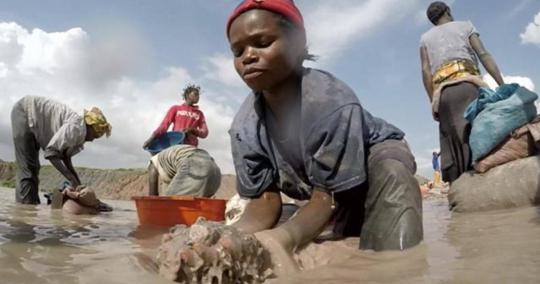
Children still mining cobalt for gadget batteries in Congo
A CBS News investigation of child labor in cobalt mines in the Democratic Republic of Congo has revealed that tens of thousands of children are growing up without a childhood today – two years after a damning Amnesty report about human rights abuses in the cobalt trade was published. The Amnesty report first revealed that cobalt mined by children was ending up in products from prominent tech companies including Apple, Microsoft, Tesla and Samsung.
There's such sensitivity around cobalt mining in the DRC that a CBS News team traveling there recently was stopped every few hundred feet while moving along dirt roads and seeing children digging for cobalt. From as young as 4 years old, children can pick cobalt out of a pile, and even those too young to work spend much of the day breathing in toxic fumes.
What's life like for kids mining cobalt for our gadgets?
So, what exactly is cobalt, and what are the health risks for those who work in the DRC's cobalt mining industry?
What is cobalt?
Cobalt – a naturally occurring element – is a critical component in lithium-ion, rechargeable batteries. In recent years, the growing global market for portable electronic devices and rechargeable batteries has fueled demand for its extraction, Amnesty said in its 2016 report. In fact, many top electronic and electric vehicle companies need cobalt to help power their products.
The element is found in other products as well.
"Cobalt-containing products include corrosion and heat-resistant alloys, hard metal (cobalt-tungsten-carbide alloy), magnets, grinding and cutting tools, pigments, paints, colored glass, surgical implants, catalysts, batteries, and cobalt-coated metal (from electroplating)," says the U.S. Centers for Disease Control and Prevention.
More than half of the world's supply of cobalt comes from the DRC, and 20 percent of that is mined by hand, according to Darton Commodities Ltd., a London-based research company that specializes in cobalt.
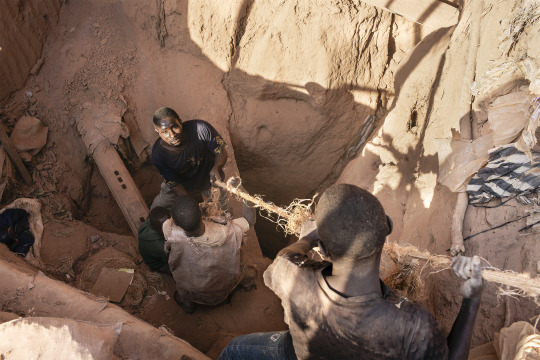
Health risks of chronic exposure
According to the CDC, "chronic exposure to cobalt-containing hard metal (dust or fume) can result in a serious lung disease called 'hard metal lung disease'" – a kind of pneumoconiosis, meaning a lung disease caused by inhaling dust particles. Inhalation of cobalt particles can cause respiratory sensitization, asthma, decreased pulmonary function and shortness of breath, the CDC says.
The health agency says skin contact is also a significant health concern "because dermal exposures to hard metal and cobalt salts can result in significant systemic uptake."
"Sustained exposures can cause skin sensitization, which may result in eruptions of contact dermatitis," a red, itchy skin rash, the CDC says.
Despite the health risks, researchers with Amnesty International found that most cobalt miners in Congo lack basic protective equipment like face masks, work clothing and gloves. Many of the miners the organization spoke with for its 2016 report – 90 people in total who work, or worked, in the mines – complained of frequent coughing or lung problems. Cobalt mining's dangerous impact on workers and the environment
Some women complained about the physical nature of the work, with one describing hauling 110-pound sacks of cobalt ore. "We all have problems with our lungs, and pain all over our bodies," the woman said, according to Amnesty.
Moreover, miners said unsupported mining tunnels frequently give way, and that accidents are common.
Miners know their work is dangerous, Todd C. Frankel wrote late last month in The Washington Post.
"But what's less understood are the environmental health risks posed by the extensive mining," he reported. "Southern Congo holds not only vast deposits of cobalt and copper but also uranium. Scientists have recorded alarming radioactivity levels in some mining regions. Mining waste often pollutes rivers and drinking water. The dust from the pulverized rock is known to cause breathing problems. The mining industry's toxic fallout is only now being studied by researchers, mostly in Lubumbashi, the country's mining capital."
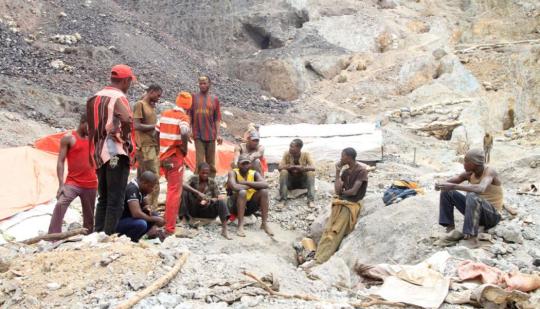
"These job are really desired"
Despite the dangers and risks of working as miners in the cobalt industry, at least of the some miners in the Congo "love their jobs," according to Frankel.
"When I talked to the miners there, none of them want to lose their jobs or give up their jobs. They love their jobs," Frankel said Tuesday, speaking on CBSN. "In a country like Congo, mining is one of the few decently paying jobs to be had there, and so they want to hold onto these jobs."
They also want fair treatment, decent pay, and some safety, "and they would love for their kids to not work in the mines," he said.
"It's a poverty problem," Frankel said. "These parents I talked to – they don't want their kids working in these mines. The problem is that their school fees – schools cost money, and you know, food costs money, and they sort of need their kids to work in there."
Poverty also drives children into the mines instead of school – an estimated 40,000 of them work in brutal conditions starting at very young ages.
The thousands of miners who work in tunnels searching for cobalt in the country "do it because they live in one of the poorest countries in the world, and cobalt is valuable," Frankel wrote in the Washington Post article.
"Not doing enough"
CBS News spoke with some of the companies that use cobalt in their lithium-ion batteries. All of the companies acknowledged problems with the supply chain, but said they require suppliers to follow responsible sourcing guidelines. Apple, an industry leader in the fight for responsible sourcing, said walking away from the DRC "would do nothing to improve conditions for the people or the environment."
Read company responses here
Amnesty said in November, however, that "major electronics and electric vehicle companies are still not doing enough to stop human rights abuses entering their cobalt supply chains."
"As demand for rechargeable batteries grows, companies have a responsibility to prove that they are not profiting from the misery of miners working in terrible conditions in the DRC," the organization said. "The energy solutions of the future must not be built on human rights abuses."
An estimated two-thirds of children in the region of the DRC that CBS News visited recently are not in school. They're working in mines instead.
CBS News' Debora Patta spoke with an 11-year-old boy, Ziki Swaze, who has no idea how to read or write but is an expert in washing cobalt. Every evening, he returns home with a dollar or two to provide for his family.
"I have to go and work there," he told Patta, "because my grandma has a bad leg and she can't."
He said he dreams of going to school, but has always had to work instead.
"I feel very bad because I can see my friends going to school, and I am struggling," he said.
Amnesty says "it is widely recognized internationally that the involvement of children in mining constitutes one of the worst forms of child labour, which governments are required to prohibit and eliminate."
#cobalt#PD Congo#PDR Congo#cobalt mining by children#amnesty university#The toll of the cobalt mining industry on health and the environment#Congo Economic Theft#minerals#rare earth minerals#tesla#iphones#cellphone batteries#ev batteries#lithium batteries#child labour#forced child labor#poverty#systemic racism
47 notes
·
View notes
Text
Turns out even the “haves” are not doing better in the “laissez-faire” regions. One of the most arresting facts that emerged from our analysis was that the most impoverished quartile of U.S. counties in Yankeedom (ones where around 30 to 60 percent of children live in poverty) have a higher life expectancy than the least impoverished quartile of U.S. counties (where child poverty ranges from 3 to 15 percent) in the Deep South by 0.3 years. Those are both big regions (circa 50 million people each) with a wide mix of counties: rural, urban, rich, poor, blue-collar and white-collar, agricultural and industrial. If you compare the poorest category of counties in (completely urbanized) New Netherland to the richest ones in Deep South, the former has a 0.4-year advantage in life expectancy. And people in the Left Coast’s poorest quartile of counties live 2.4 years longer than those in the richest quartile counties in the Deep South.
36 notes
·
View notes